The great thing about classic albums is that they remain just that – classic. So we make no apologies for raiding the Sentinel Daily archives as part of our Metal May festivities to exhume this chat from 2017 with producer Simon Efemy about the making of Paradise Lost’s 1995 epic Draconian Times… enjoy!
It’s great to talk to you Simon, and thanks for getting involved in this latest Sentinel Daily series; Before we get into the nitty gritty of Draconian Times I’d like to put that time into a bit of context for our readers. You’d already worked with Paradise Lost before, on both the Shades of God album from 1992 and Icon from the following year – what preparation did you make for the album, and were you looking to change anything with the way you worked with the band for Draconian Times? “Well, obviously the drummer had changed (Matthew Archer had left to be replaced by former Marshall Law man Lee Morris), that was a pretty big thing, and there was a lot of pressure on the band to deliver a mega album… I don’t think anyone felt a heavy duty need to change because Gregor (Mackintosh, guitars) and Nick Holmes (vocals) were in fine form writing-wise, and everything was prepared. Me and (manager) Andy Farrow had a talk about things, and picked the studios; I’d been working a fair bit at Great Linford Manor, where I knew I could get a big drum sound, and we also wanted to work at Ridge Farm studios because of all the history that place has, so that was the preparation really. My main criterion was that we got the vocal melodies right, as we had done on Icon and even Shades of God”.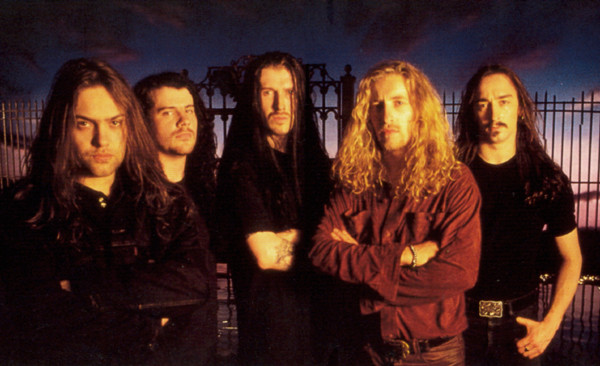
So let’s go track-by track. Enchantment was the first song on the album. “Yes. Obviously it came with a big intro, and choir and everything, getting the choir in was quite amusing…”
Had you ever worked with a choir before? “I had actually, I’d done loads of that stuff. Back in the day in Stourbridge we used to have a studio, and I did all the local amateur dramatic things, when they put on Cinderella or the Wizard of Oz at the local Town Hall. But the funny thing was, with there being kids in the choir, we had trouble keeping the language down. You can imagine what us lot were like, and then suddenly the studios were full of these well-to-do Home Counties kids… that was fun. But most of all I remember the epic feel of that track”.
What about Hallowed Land? “That’s a great track. I don’t remember too much of the actual process of it, but we got the impact”.
British heavy metal was in a bit of a pit at this time, wasn’t it? Priest and Maiden were both on the downward spiral, PL really brought some pride back to the scene with tracks like this. “Yeah… I don’t like coining the term gothic metal, but we’d sort of started that with Icon, even though it was rough and ready, and with Draconian… we had more time to refine that. It was well before the days of computer editing, and everything had to be done meticulously over and over again to get it right; I listen back to some of the timing and tunings on Icon and you’d never get away with it on a modern recording, but in some ways that’s the beauty of the record isn’t it? For Draconian… I was looking to get a classier feel”.
Track three was The Last Time. “They’d always earmarked that as the single. I think that was the toughest track to do. It was the first one we did, and when you record the first song it always seems tough, whatever album you’re doing. It was the first song we mixed. You mix it, you go back to it, it was a tough one but it came out alright in the end and I think I did the right things with it”.
How about Forever Failure? “That’s the epic one for me. It’s the song I enjoyed most. The solo at the end… I remember recording that. I remember Gregor being in the control room with me and getting the goosebumps. In a way it was a shame it didn’t go on a bit longer! I remember after that I did some stuff with Skid Row, Draconian Times wasn’t out yet, but I had a master copy. I was with Sebastian Bach in the control room and he said ‘what have you been working on?’ and I played him Forever Failure which he thought was pretty good…. It was my favourite because it really is epic and that solo at the end is an absolute killer I think. Even today, if I listen to Draconian Times that’s the track I’ll put on”.
When you feel that way about a track, how hard is it for you to keep your producers hat on? “You give yourself moments! Like at the end of the night when you’ve had a couple of beers you can listen to something as a punter… But in the daytime you have to listen to it with producers ears – sounds, tones, timing, tuning et cetera, thinking ‘how can we make this better?’ but I’m quite lucky that I’m able to switch off sometimes. To deviate slightly however if I go out to gigs these days I can’t switch off. If a sound isn’t right at a gig I can’t watch it. But with records it’s different. I can listen to Forever Failure and not even blink about the production”.
My favourite track on the album is the next one, Once Solemn. What do you remember about that one? “It’s a rocky one! Aaron (Aedy, guitars) was in to that one… we were rocking out in headbanging in the control room with that one! There were plenty of antics… we did used to get ‘lubed up’ with a few bottles of wine. There were two recording assistants and every day they had to go down to the off licence (laughs) I didn’t used to get too bad but every night when we were down at Ridge Farm, which was a very plush studio well – you couldn’t help yourself…”
How quickly were you working at this point? How long would a single track take to cut? “Well the whole thing took six weeks. We did all the drum tracks, bass and some of the guitars at Linford Manor, and the idea was to go down to Ridge Farm and finish it. But the guitar sounds we got at Linford weren’t quite right, we’d had some technical problems. I remember listening to it and it didn’t even sound as good as Icon. And I thought ‘this can’t be right’… I think it was a problem with the studio itself, the way we had it set up, because when we fired everything up at Ridge Farm it sounded so much better. So Aaron basically redid all the rhythm guitars, and obviously we did the vocals there. The way we did it was to do a bit of guitar in the day, then with the singer maybe starting after tea time when he was warmed up, and we would go on all night working on one track. A couple of times I had to give Nick a day off to rest his voice. I really did work him hard. Today with pro-tools you can record something three or four times and get it right, but back then you just didn’t have that facility. It was a case of ‘again…again…again…again…’ I think he hated me for it at the end! I see him every now and then now and we laugh about it! But what can you do? It had to be right. And he was chuffed with it at the end of the day”.
The production still stands up today though doesn’t it? “It’s not bad! The (2011) remaster of it that they did was really good. They asked me for some quotes for the release and sent me a copy and yes, it was a good job. People come up to me sometimes and rave about the album. It sounds great, but sometimes you don’t see it yourself when you’re that close. It’s hard to be objective”.
The next track is Shadowkings. “Oh God. That one… we mixed it and it’s got that ‘phasey’ bit in the middle, but it was too loud. We came to the last day and in those days the recording desks were all automated. You could recall mixes straight from the desk. This was before pro tools, so when you ‘called’ a mix, said it was OK, the engineering assistants wrote down all the settings. So I said about this ‘phasey’ thing ‘it’s OK, we’ll recall the mix at the end’ so we could fix it. Well, we did that and something had buggered it up! It wouldn’t recall properly! I was going ‘fucking hell! What are we going to do?’ Luckily the day after mixing we took it to mastering and were able to sort it out then. So what I recall about Shadowkings is ‘’oh shit!’”
What would have happened if the mastering hadn’t sorted things out? Would you have had to re-record everything from scratch? “We’d have had to go back and completely remix it. But luckily it was just a couple of seconds and we were able to cut those frequencies out when the mastering was done. Really cleverly done and I didn’t think it would be possible!”
The next track was, and is, Elusive Cure. “That was a good one. I enjoyed that one as well. I don’t remember too much about doing that one. I think we worked harder on the vocals on that one than anything else”.
What about Yearn For Change? “Same again, nothing really stands out. Sorry to be blunt! But we were really getting through these songs and enjoying them”.
Were you able to comment on the band’s songwriting or performance during the sessions and say if you felt things weren’t up to scratch? “Oh yes, definitely. We worked hard on things like vocal melodies. Nick would have the lyrics and basic patterns, but I helped him with the actual tunes, to bring out the more melodic things rather than the ‘wooarrghh’ type stuff. I knew that was what Greg wanted, as he was well into more pop-orientated stuff like Depeche Mode, I knew he wanted tunes, and that was my whole thing. And it was the same with the lead guitars, keeping them melodic, keeping them tuneful. I’m a singer myself, and I like classic metal, so it was very much ‘come on lads, get some melody in there!’”
But that’s what makes heavy metal so great isn’t it? The melody in amongst the heaviness? The best heavy metal is stuff you can whistle. “Yes. Priest, Dio, Queensrÿche, all those bands we love – why do we love them? Because the (a) they’re heavy, (b) the riffs are great and (c), most importantly, the tunes are good. As much as I love thrashing stuff and not so melodic stuff you still always come back to that”.
OK, we’ve got four songs left, and the next one is Shades of God. “Again, not much comes to mind about this one”.
Hands of Reason? “It’s not one of the major songs on the album. Some things remain, some come into your head when you start thinking about them. If we’d have been doing this a year after the recording (laughs)”…
Was that something to do with the move to CD’s – this recording so many songs that some of them sort of just flow together as one memory? – For a while bands just seemed to record and record until they’d filled up all the space on the disc. “It is, yes. I didn’t like it. I still think ten songs is enough. All killer no filler”.
Number of the Beast only has eight songs. “Yeah, exactly. And look at the Van Halen albums!”
Yes. Twelve minutes of Van Halen music and five cover versions! You say things like Hands of Reason aren’t major songs for the album, but listening back now they are still pretty good songs aren’t they? “Oh yes. I don’t mean that in a bad way, it’s just that the things that you really like you remember, or the things where technical stuff went wrong, you remember that maybe more so. But the rest of them, twenty years on, I can picture the process but that’s about it”.
So who’s idea was it to have so many tracks on the album? “Just the band’s. It was full-on CD time, everyone was doing it, I don’t think I even disagreed with it at the time. Maybe I did say it was a few too many. Now I’d definitely say it was too many”.
The penultimate track is I See Your Face. “I remember that one because I had a track with the same name! Although it wasn’t anything like this one… It was with one of the mad pop bands I was with back in the day in Stourbridge”.
And the last song is Jaded. “Yeah, again, not too many memories. The overall thing was that it felt like an album. We compiled the running order as we went along, and running through it everything thing felt good and it felt like a good album. From a producer’s point of view the running order is massively important, and I always had an input in that. This album felt good, the way it ran from start to finish”.
I seem to remember that Music For Nations put the album out as a double, with both records being cut like twelve inch singles. Did that present specific problems with the mixing? “Yes, when we did the cutting and the mastering it had to be done for CD and vinyl. The guy who mastered it, Kevin Metcalfe at the Townhouse, was really good”.
It sounds like it was a happy time for you? “It was, it was really good. We had a laugh. There were pranks, jokes… I remember we had this thing where the kid who was assisting me had no hair, he was quite bald. This was in the days of fax machines… I’m not quite sure how we did it but we pretended that we’d cut Greg’s hair off, faxed this kid’s bald head off to Andy Farrow and said we’d got absolutely pissed the night before and Greg decided he wanted his hair cut off. He went ballistic! ‘what have you done? The records coming out and you’ve lost your image!’ He was absolutely mad. It was a good time”.
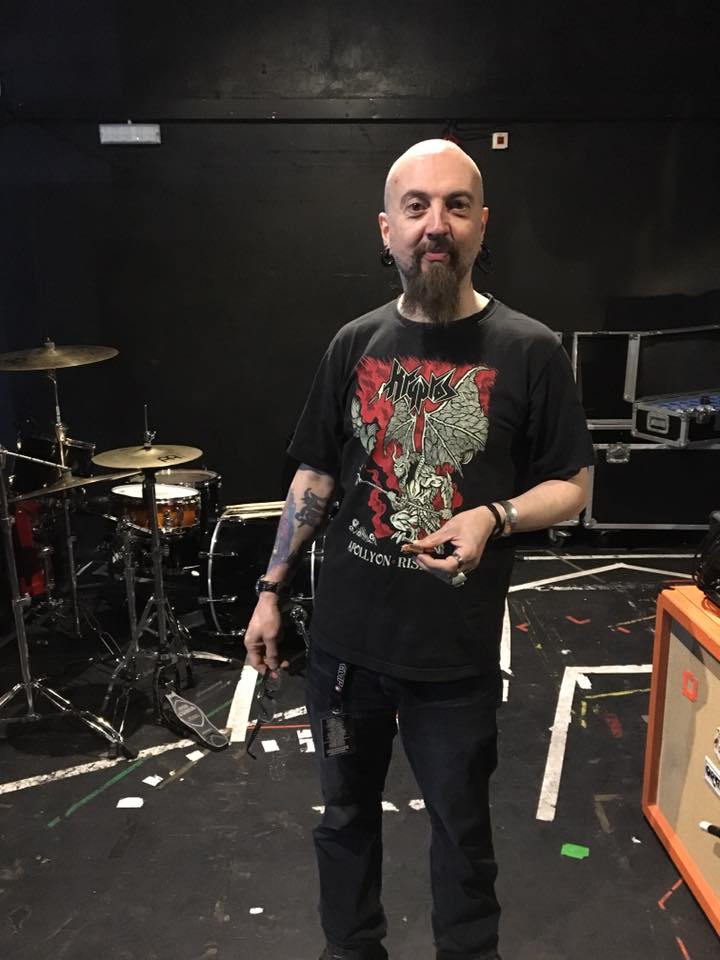


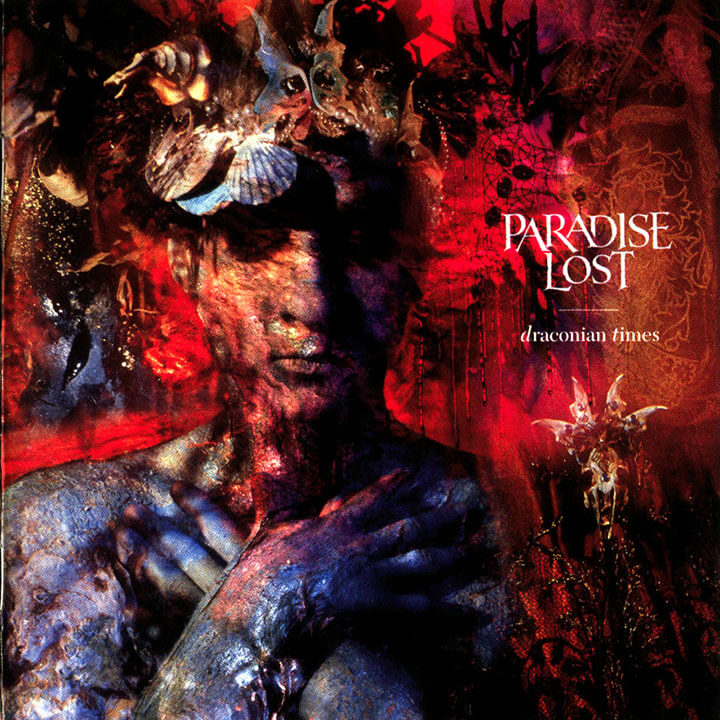
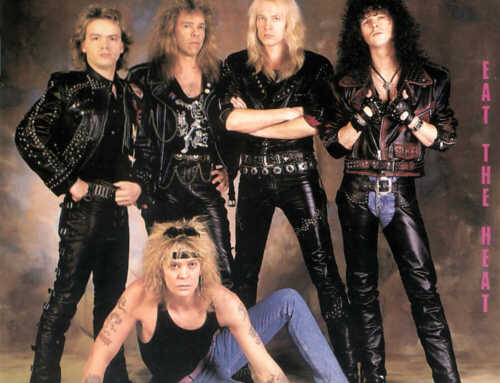
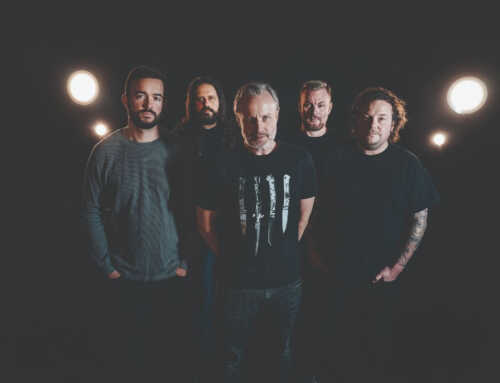
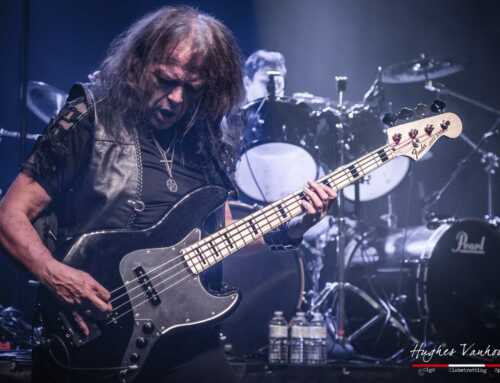
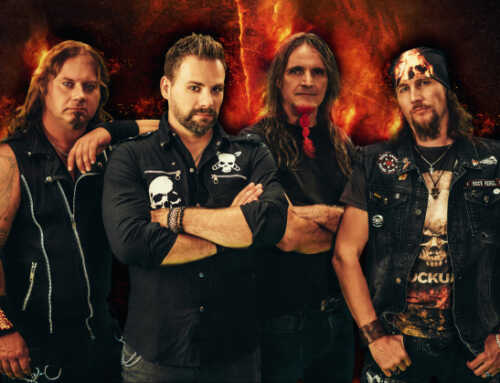
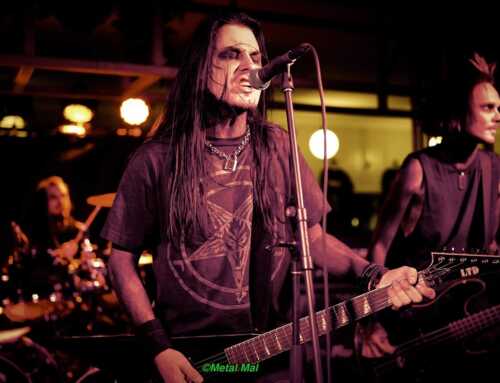
Leave A Comment